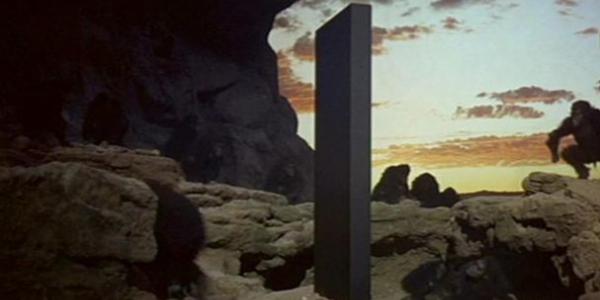10 Insane Movie Theories You Won't Believe
9. 2001 Is A Monolith Unto Itself

See, once you get on board with the "everyone is dead" level of fan theories, you're prepared for the stronger stuff. It's like trying the lemon herb at Nando's and slowly working you way up to medium spiciness. Or a gateway drug. One of our favourite, more meta fan theories about films relates to Stanley Kubrick's 2001: A Space Odyssey. The visionary director's work is a favourite of conspiracy theorists, with a whole documentary (the excellent Room 237) devoted to a trio of crackpots extemporising on why his 1980 horror classic The Shining is alternately an exploration of the Holocaust, the slaughter of Native Americans, and Kubrick's apology for his part in faking the Moon landings. It isn't any of those things, by the way, just a slightly bad adaptation of a Stephen King book that nevertheless ended up being brilliant in its own right.
2001, meanwhile, is a film that all but begs to be over-analysed, and yet most of the readings of it tend to be pretty staid. Yeah yeah, everything moves in cycles, the discovery of fire is analogous to the discovery of deep space travel, all that happens is bound to be repeated, intergalactic babies, we get it. Far more interesting is the fringe fan theory that the movie itself is a monolith, of the sort that periodically appears across the film's run time and inspires great leaps in human consciousness, or inspires some technological advance. In fact A Space Odyssey opens with a black screen, with some imaginative audiences taking this to be one of those monoliths, as the film is itself a technological and evolutionary advancement that Kubrick is bestowing the world. Bit arrogant. Albeit totally justified.